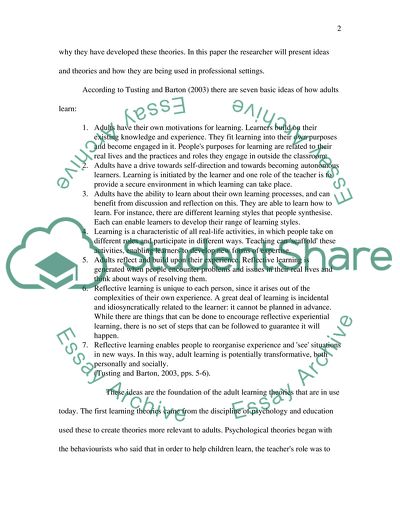Cite this document
(Critical Reflection about Opportunities for Adult Learning Essay, n.d.)
Critical Reflection about Opportunities for Adult Learning Essay. https://studentshare.org/education/1714000-models-of-adult-learning-and-critical-reflection
Critical Reflection about Opportunities for Adult Learning Essay. https://studentshare.org/education/1714000-models-of-adult-learning-and-critical-reflection
(Critical Reflection about Opportunities for Adult Learning Essay)
Critical Reflection about Opportunities for Adult Learning Essay. https://studentshare.org/education/1714000-models-of-adult-learning-and-critical-reflection.
Critical Reflection about Opportunities for Adult Learning Essay. https://studentshare.org/education/1714000-models-of-adult-learning-and-critical-reflection.
“Critical Reflection about Opportunities for Adult Learning Essay”. https://studentshare.org/education/1714000-models-of-adult-learning-and-critical-reflection.


